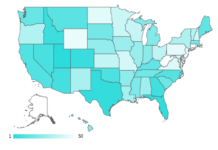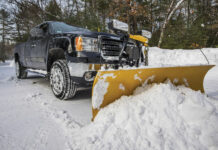As the COVID-19 pandemic moves into its fourth month on US soil, even those small businesses who managed to procure a stock of PPE, cleaning products, and sanitizer at the outset of the crisis may find those resources now dwindling. And unfortunately, many supply chains still have not returned to normal with “Out of Stock” a prevalent PPE product description on many Web sites.
As America reopens, the scramble for gloves, mask, cleaning supplies, and hand sanitizer may likely become even more difficult. While larger organizations have procurement departments and bulk buying power, smaller businesses may be left out in the cold. How can you get what you need for the safety of your crews?
Regional Initiatives
To replicate the bulk buying power of large companies, some state and local governments, as well as Chambers of Commerce, are helping to obtain supplies that are then filtered to small businesses. In Orange County, FL, the “PPE for Small Biz Initiative” provided free face masks and hand sanitizers to businesses with 40 employees or less. After filling out an online form, business reps could pick up the supplies at various drive-through sites on several dates in mid-May.
A similar program was enacted in Washington state in late April. Business Health Trust, a health plan serving small businesses in WA, and the Seattle Metropolitan Chamber of Commerce began a four-day statewide distribution of portable hand sanitizer stands and other supplies, including disinfectant solution, gloves, and masks, to 500 small businesses.
A Seattle Chamber press release stated the effort was specifically geared toward small businesses that do not have access to the supply chains and resources of larger businesses. “We are in construction and beginning to re-open. Without these supplies, we wouldn’t have been able to safely get back to work,” said a rep of Seattle-based Rhino Construction.
Other areas, while not donating supplies, are providing small businesses with resources for acquiring them. In Kentucky, small businesses in need of face masks can be ordered through the Kentucky Chamber of Commerce at kychamber.com/maskorderform. There are three-ply masks available, sold in boxes of 50. Businesses can also put in a hand sanitizer request form through kyhandsanitizer.com.
In Idaho, Governor Brad Little announced on May 14 that small businesses can access a 30-day supply of PPE at supplies.idaho.gov. “It’s been a challenge for small businesses to acquire PPE in quantities appropriate for their size,” said Governor Little. “We don’t want the lack of access to PPE to inhibit small businesses from opening, and this new resource is an interim bridge to help them get back to work safely and build consumer confidence while the supply chain normalizes.”
Industry Connections
Beyond local government and Chambers, industry-specific associations and vendors can be a resource for finding supplies. The New Jersey Landscape Contractors Association (NJLCA) has found itself in one of the major hot spots of the pandemic and all the challenges that entails. “We had a virtual roundtable with our members about what they have been doing and it is a mix. We have heard from a few having a hard time finding masks, but one of our vendors, Gamka Sales in Edison, NJ, is now selling them and I have been directing [our members] to him,” Gail E. Wolcott, NJLCA executive director, told Turf. (Click here for more on safety practices NJLCA landscapers have been implementing.)

At the National Association of Landscape Professionals (NALP), members can receive a 15% discount on online orders until May 31 at Gempler’s, a landscape and outdoor contractor supplier in Janesville, WI. Carl Atwell, Gempler’s owner and President, says many of their product categories such as respirators, protective clothing, and sanitizer “were hit really, really hard” but the supplier managed to persevere as best they could. Some items, such as nitrile gloves, have remained constantly for sale, though best selling styles and brands have been sold out. A huge initial surge in the sale of protection goggles is now abating, with 1,200 now in stock as of this writing. Face shields are available, but stock of sanitizer is still a few months away. “The supply chain is starting to catch up,” he says, but adds, “that’s a for-now answer.” (He also emphasizes that landscapers should contact them with any needs. “We’re here to help,” says Atwell.)
Overall, Atwell has a “glass half full” and “where there’s a will, there’s a way” approach. “In most cases, people can find a solution… you have to get creative… but most small business people are good at that, they’re used to having to figure things out,” he comments. He mentions measures like rewashing cotton gloves and getting sanitizer from a distillery as alternatives. Though he admits respirators are particularly challenging in terms of coming up with a creative PPE solution. “Then the creativity comes in networking,” to find sources, he says.
Each day, Atwell gets a stock report and says he could tell as early as late January that respirators were starting to go. While Gempler’s currently has a stock of full and half masks with reusable cartridges, Atwell says “we’re just starting to get N95s. It will be the end of June or July before we can fill new orders.” But whether supply will be a trickle or full faucet for many products remains to be seen. Remarking on the prevalence of cloth masks, he asks, “It seems a pretty big percentage of people have masks, so does that mean [the general public] won’t buy N95 masks now?”
Unexpected Sources
Everyone’s heard about the businesses “pivoting” to meet the needs for PPE during the pandemic. From distillery by-products, to 3D printing, to mask sewing at home, supplies can often be found in unexpected places.
Business Health Trust’s PPE donation in WA was in partnership with a WA-based manufacturer who produced the portable sanitizer stations. “When we heard that there was a need, we immediately re-tooled our shop and began producing hand sanitizer stands that can serve our state,” says Scott Smith from Clean Shop Supply in Yakima, WA.
A NY Magazine article, “Where to Buy Hand Sanitizer,” had a surprisingly large list of companies still selling sanitizer—but it wasn’t Purell or other common names. It was candle manufacturer, Votivo; clothing retailer American Eagle; and smaller “boutique” products. Yet some had fairly large quantities of sanitizer available.

Griffo Distillery, in Petaluma, CA for example, makers of Scott Street Gin and Stony Point Whiskey, now feature their gallon jugs of gel and liquid sanitizer prominently on their home page. At $58 a gallon plus shipping, Griffo says it’s the FDA/CDC recipe for 70% denatured hand sanitizer. And bulk buying by the pallet or truck is available at discounted prices.
According to the Distilled Spirits Council of the US, 827 distilleries across the U.S. are now making hand sanitizer. Find an interactive state map here to discover if there’s a site near you.
What about making your own sanitizer? Experts, including the U.S. Food and Drug Administration (FDA), say it’s not a good idea. Without being made in a sterile environment in the proper manner and proportions, at best it can be ineffective, and at worst it can cause skin burns.
Disinfecting
The FDA also notes that buying antibacterial soap is unnecessary. Apparently, there isn’t enough science to show that over-the-counter (OTC) antibacterial soaps are any better at preventing illness than just plain soap for hand washing.
When it comes to cleaning surfaces (not on humans), most common EPA-registered household disinfectants should be effective, according to the CDC. Find a list here. Additionally, diluted household bleach solutions (at least 1000 ppm sodium hypochlorite) can be used if appropriate for the surface, says the CDC. Prepare a bleach solution by mixing: 5 tablespoons (1/3rd cup) bleach per gallon of water; or four teaspoons bleach per quart of water. Bleach solutions will be effective for disinfection up to 24 hours. For electronics, follow manufacturer guidance or, if not available, use alcohol-based wipes or sprays containing at least 70% alcohol to disinfect touch screens.











![[VIDEO] Dickies®: Discover Workwear That’s Anything But Uniform](https://turfmagazine.com/wp-content/uploads/2023/06/1647663814-4b1a2a7742790a9b1e97a3b963477850192e1d6a9dfba9b07214a77bae25d6e3-d-218x150.jpg)






























![[VIDEO] Dickies®: Discover Workwear That’s Anything But Uniform](https://turfmagazine.com/wp-content/uploads/2023/06/1647663814-4b1a2a7742790a9b1e97a3b963477850192e1d6a9dfba9b07214a77bae25d6e3-d-324x160.jpg)